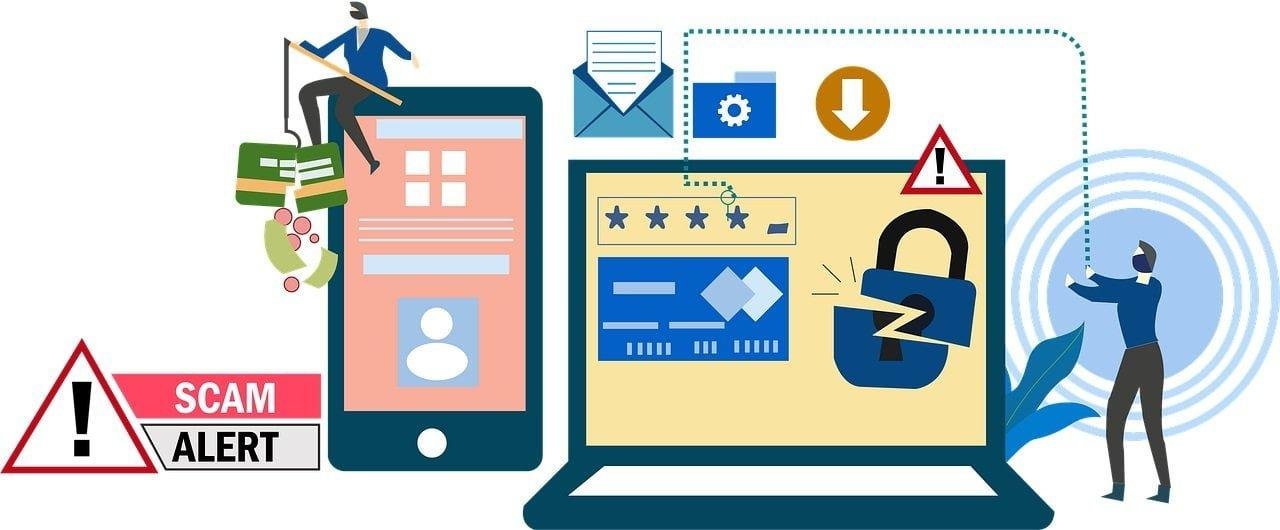Sometimes, it is hard to recognize a scam for what it is until it’s far too late. In order to help you avoid such situations, we’ve put together essential tips to spot and avoid scams.
Trust your instincts
When setting financial goals, relying solely on instincts may not be the most reliable strategy. However, when it comes to trying to spot and avoid scams, trusting your instincts can be a game-changer. Our instincts are like built-in alarm systems that alert us to potential dangers or suspicious situations, helping us to spot and avoid scams. They are finely tuned to recognize patterns and inconsistencies our conscious mind may overlook! So, if something feels off or too good to be true, listening to that gut feeling is essential. Scammers often rely on creating a sense of urgency or exploiting our emotions, hoping we’ll overlook the red flags. We can protect ourselves from falling victim by trusting our instincts and being skeptical of situations that don’t feel right. So, trust your instincts next time you encounter a potentially fraudulent situation and proceed with caution.

Verify the source
When it comes to online interactions, verifying the source is crucial. One thing you can do is pay attention to reviews if you find a site that looks legit. Reviews can provide valuable insights into the reputation and trustworthiness of a business or service. For example, if you’re looking into a ‘promising and cheap’ moving company, the importance of positive mover reviews that don’t look obviously fake is essential to check out their reputation. So, positive reviews from genuine customers can be a good indicator of the company’s reliability and quality of service. Still, be cautious of sites or services with an overwhelming number of negative reviews or suspiciously positive ones. Additionally, take the time to research the credibility of review platforms themselves to ensure they are reputable and unbiased.
Do your research
When it comes to avoiding scams, conducting thorough research is paramount. It’s crucial to approach any offer or solution with a healthy level of skepticism. Why? Because there are typically no easy and quick ways to solve your financial problems, you should be wary of anyone claiming otherwise! Scammers often prey on individuals seeking a rapid resolution, promising unrealistic results and monetary relief. However, it’s essential to be diligent and delve deeper before committing your hard-earned money. So, take the time to investigate the legitimacy of financial services, investment opportunities, or debt relief programs. Rely on credible sources of information, such as reputable financial institutions, consumer protection agencies, or financial advisors. By dedicating yourself to thorough research, you can make informed decisions and protect yourself from falling victim to fraudulent schemes.
Be skeptical of unsolicited communications
In today’s digital age, skepticism of unsolicited communications is crucial. Exercising caution is key, whether it’s a phone call, email, or message. Scammers often employ unsolicited communication as a way to gain access to personal information and financial details or exploit vulnerabilities. Therefore, it’s essential to be vigilant and question the legitimacy of any unexpected contact. Look out for red flags such as urgent requests for personal or financial information, offers that seem too good to be true, or poor grammar and spelling in emails. Remember, reputable organizations typically don’t reach out to individuals out of the blue to request sensitive information. So, when in doubt, verify the authenticity of the communication through independent channels.
Watch for red flags in financial transactions
Being cautious is crucial when it comes to financial transactions. You can’t manage your finances well if you’re not cautious! So, it’s important to watch out for red flags indicating potential scams or fraudulent activities. For example, be wary of unsolicited investment opportunities promising high returns with little to no risk. Exercise caution when sharing your financial information, such as credit card details or bank account numbers, especially online or over the phone. Look out for suspicious charges, unauthorized transactions, or unusual account activity, too. Stay vigilant for signs of phishing attempts as well, such as emails or messages requesting sensitive information. Remember, it’s better to be cautious and take the necessary steps to verify transactions than become a financial fraud victim.
Be aware of common scam techniques
Awareness of common scam techniques is essential when spotting and avoiding scams. Scammers employ various tactics to deceive and manipulate unsuspecting individuals, so staying informed is important. One prevalent scam technique is phishing, where scammers use deceptive emails or messages to trick recipients into revealing personal information or clicking on malicious links. Another common technique is identity theft, where fraudsters steal personal data to assume someone’s identity and carry out fraudulent activities. Pyramid schemes, lottery scams, and fake charities are other methods scammers use to exploit people’s trust and generosity. So, by understanding these scam techniques, you can recognize the warning signs and avoid falling into their traps.
What to do if you eventually become a victim
If you fail to spot and avoid scams and become a victim of one, it’s important to take immediate action. First, gather all relevant documentation and evidence of the scam. Then, report the incident to your local law enforcement agency or the appropriate authorities. Contact your financial institution to freeze or close any compromised accounts and dispute any unauthorized transactions, too. It’s also advisable to place a fraud alert on your credit reports. Seek professional assistance from organizations specializing in fraud recovery or identity theft, as they can provide guidance and support throughout the process. Remember to update your passwords and strengthen your online security measures to prevent further attacks as well. Finally, share your experience with others to raise awareness and prevent them from falling victim to similar scams!
Working to spot and avoid scams
If you apply our essential tips to spot and avoid scams rigorously, we are sure you’ll be fine. However, remember that it’s carelessness and distraction that these scammers count on. So, no matter how low the chances of something being a scam are, confirm before taking action.










